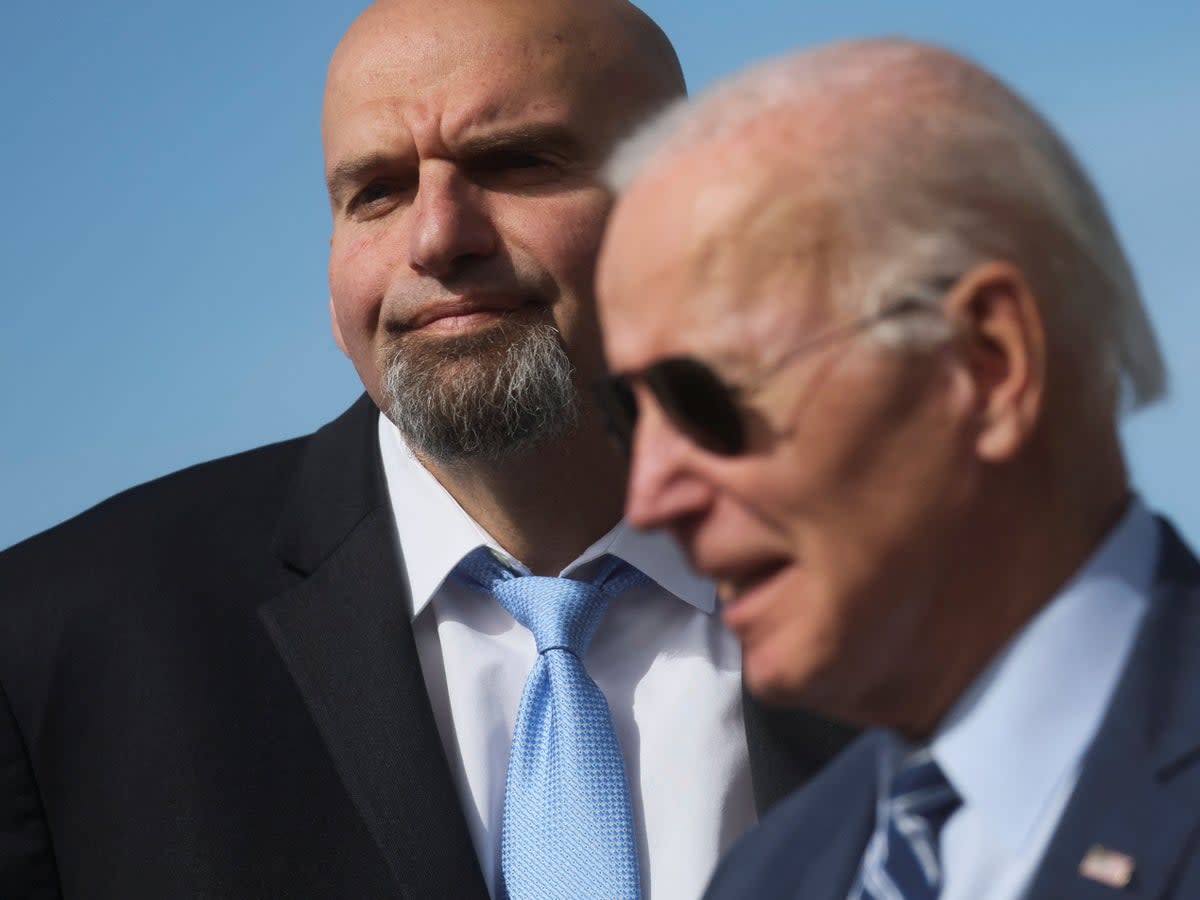Voices: Has the Democrats’ hoped-for ‘Dobbs effect’ tapered off?

- Oops!Something went wrong.Please try again later.
If this week’s polls are to be believed, Republicans’ prospects of winning a larger majority than expected and potentially flipping the Senate, to say nothing of governorships, have markedly improved.
Monmouth University released a poll Thursday showing 49 per cent of American adults prefer Republican control of Congress. That number matches the New York Times/Siena College poll earlier this week that showed Republicans had an overall advantage with likely voters.
Monmouth also found that inflation jumped nine points as the top issue, going from 37 per cent to 46 per cent in the past month, while jobs and unemployment jumped from 28 per cent to 32 per cent. All of this comes as anxiety about gas prices increase. Meanwhile, concern about abortion remains roughly unchanged; if anything it has receded, dropping from 31 per cent to 30 percent in the past month.
This isn’t just a broad-strokes national picture. Pennsylvania’s Senate race once looked like a sure victory for Democratic Lieutenant Governor John Fetterman, but a new InsiderAdvantage/Fox29 poll showed him now a virtual tie with television physician Mehmet Oz, with the main factor being Dr Oz’s 20-point lead with independent voters.
President Joe Biden tried to lend a hand yesterday, helming a Fetterman fundraiser in Philadelphia where he declared that the man he’s called “that big ol’ boy” has “integrity”.
“You never have to wonder that he means what he says,” the president said, taking a dig at the candidate for not being from Pennsylvania, saying he went to high school in Mr Biden’s bailiwick of Delaware – a state that “was smart enough to send him to New Jersey”. A problem for Mr Fetterman: the avuncular Mr Biden in fact has relatively low approval numbers in the state where he was born, clocking in at less than 40 per cent.
In New York, meanwhile, a Quinnipiac University poll puts incumbent Governor Kathy Hochul only four points ahead of Republican Representative Lee Zeldin. And even in dependably blue Oregon, Republican gubernatorial candidate Christine Drazan is locked in a tight battle with Democrat Tina Kotek, third-party candidate Betsy Johnson acting as a potential spoiler.
It all feels like a marked reversal since the brief moment when Democrats felt the wind at their backs after the Supreme Court overturned Roe v Wade in its incendiary Dobbs v Jackson ruling. The dramatic transformation race that was expected to result is yet to manifest; as Republican lobbyist Liam Donovan tweeted, “Not sure that’s it so much as being baked in, but interesting in terms of the dog that didn’t bark.”
But the real effect may simply be more subtle than anticipated. Inside Washington spoke with Democratic pollster Zac McCrary at Impact Research, who noted that the Dobbs effect is still very much in play – and that it’s important to remember that before the decision came down, Democrats were expecting to face a full-blown bloodbath.
“And I think it’s not only Dobbs, but I think Dobbs did a lot to help build back the Democratic support, build back a foundation of support among Democrats that put Democrats in a much more competitive place than they were previous to that, or really than Democrats should be by most of the fundamentals,” he said.
Mr McCrary noted that midterms are ultimately about fundamental political and economic forces. Even though Mr Biden’s approval rating has ticked up, his numbers are still not good, and many voters still think the country is on the wrong track.
“That’s not purely a reflection of voters’ views toward Democrats,” he said, “but Democrats are running the show, so Democrats are going to be on the business end of the frustration that voters feel on that. A lot of the economic odds numbers are pretty pessimistic.”

